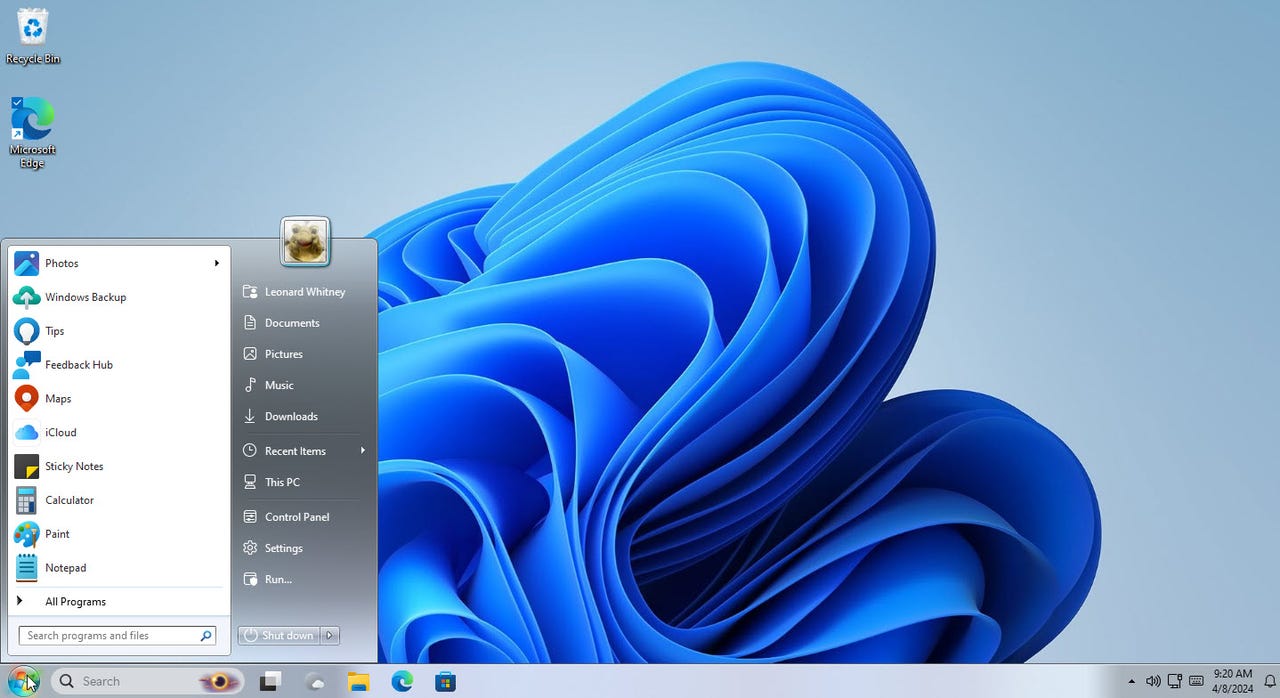Microsoft is annoying users again. Here's what it could do instead

Is there a better way?
It's tempting to believe that brute force always works.
After all, wasn't much of the modern tech industry built upon the notion of moving fast and breaking things?
Also: Microsoft wants to show you ads in Windows 11's Start menu. Here's how to prevent them
When it comes to Microsoft and some of its ingrained customer-facing habits, the idea that you can simply force things on your users rarely dies.
Yet the company's latest attempts seem, as often happens, to have annoyed the very people Microsoft shouldn't.
A wreckommendation?
First, Microsoft decided this was the right time to mess with the Windows 11 Start menu. By inserting ads for "recommended apps."
I know this annoyed people because my colleague Lance Whitney began his description of this maneuver with delicious words: "Microsoft is testing a way to further mismanage the Windows 11 Start menu: displaying icons for recommended apps."
I sense he may even have been very annoyed by this maneuver -- even though it's only a test -- because he added: "As a Windows Insider, I have some feedback, none of which is printable. Despite being a $3 trillion company with $227 billion in revenue in 2023, Microsoft apparently feels the need to eke out more money from Windows users by annoying them with ads."
Lance wasn't alone in his feelings. Why, here's a headline from Windows Central: "Microsoft, please, enough with the ads -- For once, I'm not experiencing FOMO with these new additions for Edge Insiders."
In this case, the ads were for Copilot, Microsoft's new AI companion. The promise is for "Copilot with more efficient settings." These include managing your passwords and bookmarking tabs.
Also: Windows 12 FAQ: Is it coming in 2024? (Plus some surprising predictions)
Often, however, we create our own efficiencies. We feel good about the way our tech functions and how we use it. Declaring baldly that there are (allegedly) more efficient settings isn't quite what one might call persuasive. Or even remotely personal.
Charm, don't harm
There is another way, Microsoft. Truly there is.
Testing new ideas by simply shoving them at your customers describes a mindset that is, well, nerdish. It's direct, it's matter-of-factual and it can be somewhat grating.
An alternative is to communicate with your customers first -- or, dare one mention it -- use a little charm and wit to entice, rather than repel.
Also: Is Windows Update annoying you? Take back control in 3 easy steps
Instead of instantly shoving recommended apps on the Start Menu, perhaps Microsoft could have teased one or two popular app recommendations in, say, a humorous way. Humor can be disarming in a way that arm-twisting is not.
Microsoft could even have shown that it respected its customers' mindset and declared: "Look, we know you don't like ads much, but these apps might just be useful."
Similarly, in the case of the Copilot ads on Edge, Microsoft could have used the voice of its new AI: "Hey, did you know that Copilot can make your life just a tiny, tiny bit easier? Want to see how?"
Also: Microsoft may try to block third-party customization apps in Windows 11 24H2
Or perhaps: "We know there's a lot of hype about AI right now, but we'd still like to show you how Copilot can help you."
Or even: "Psst. Copilot wants to be your new friend that's actually there when you need them. We all need friends like that, right?"
Think about what you know
Of course, there's a difference between inserting a product change you feel sure the customers will like, as opposed to one that you know -- you just know -- they'll see as merely the company trying to make more money.
Recently, Microsoft slipped a tiny new element into Outlook that was extremely helpful -- giving users an instant view of potential junk mail via visible email addresses. It did it without fanfare. Microsoft surely knew this was an idea customers would appreciate. (I did.)
Also: The best Windows laptop you can buy: Expert tested
But when customers -- particularly paying customers -- are faced with the cold insertion of something they may instinctively be resistant to, they tend to respond with frigid irritation.
This is something Microsoft actually knows, too. Or, rather, has learned over time. The company has made considerable -- and successful -- efforts to move its brand expression from the Arctic Circle to somewhere off the Florida coast.
Microsoft has understood that human warmth is a valuble asset, one that isn't immediately revealed on its balance sheet.
If you recognize the truth of that, you have to carry it through all of your communication. Even the most basic, potentially irritating communication. Especially the most basic, potentially irritating communication.
Hey Microsoft, make love, not war.
